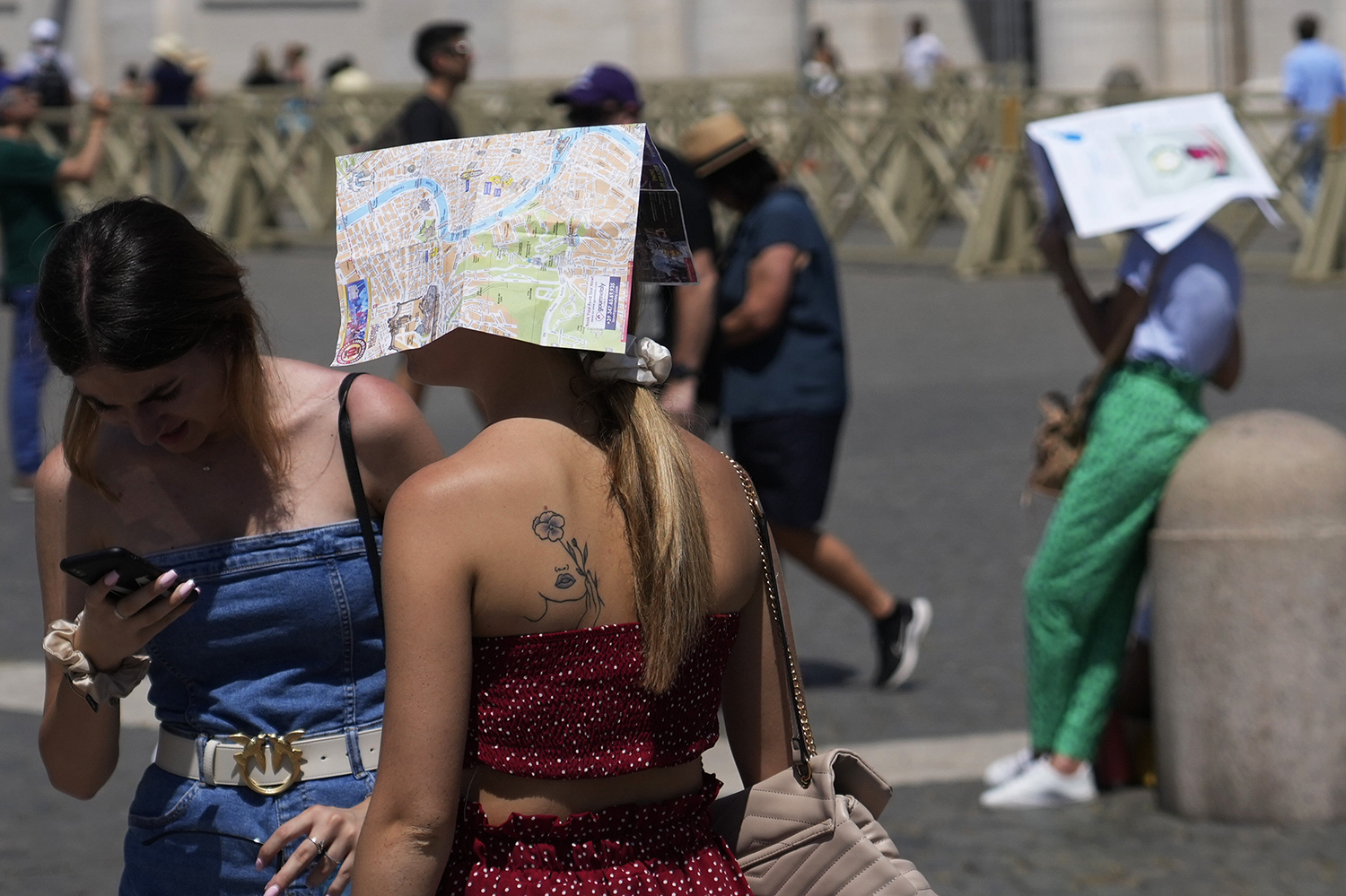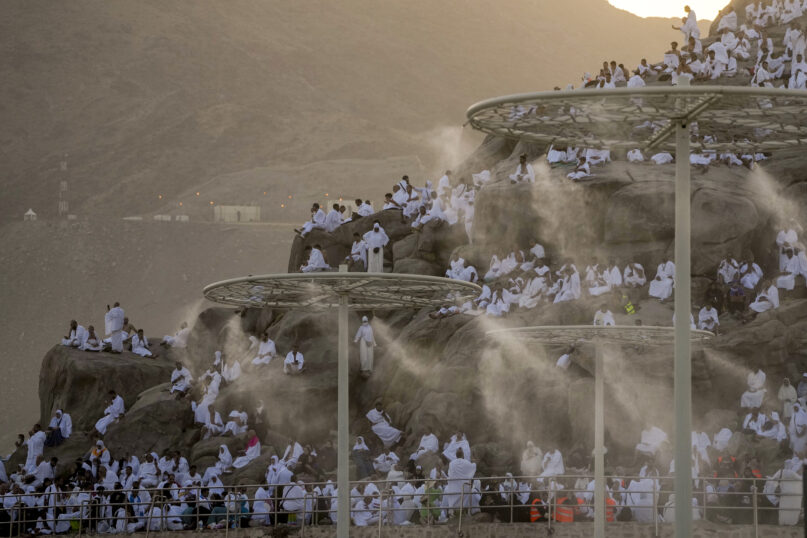(RNS) — In the middle of the hottest summer on record, I happened to be making a pilgrimage to Vatican City on the hottest day ever recorded in Rome. As I prepared to take in the magnificence of the Sistine Chapel, I saw an emergency medical team attending to a fellow pilgrim in severe distress on the floor from heat sickness. As they raced to bring in fans, douse him in cooling rags and scrambled to keep him conscious, our own guide reminded us all to stop and hydrate as a matter of protecting life.
A Black evangelical climate organizer, I had gone to visit the heart of the Catholic faith. My once-in-a-lifetime opportunity became a life-threatening one due to a dangerous risk of heat distress.
The experience put me in mind of Jewish pilgrims, with Psalms of Ascent on their lips as they cross desert highways to annual festivals or prepare for Shabbat. Temperatures topping 109 degrees in June left 300,000 homes across Israel without power on a Friday afternoon, shutting down three of the five water desalination plants for the entire country. With sizzling temperatures set to return in July, the Nature and Parks authority proactively decided to close sites during the heatwave to protect pilgrims.
Our Muslim global neighbors have always been ready to endure the arduous for the sake of God, but this summer pilgrims on hajj crossed a rising Mediterranean Sea and a warming Arabian Sea. With temperatures in Mecca rising to 118 degrees, a Saudi health ministry official pleaded for caution. Officials warned pilgrims to stay out of the sun and drink plenty of water, as heat-stress cases in a single day reached 1,721.
These pilgrims are the souls in motion representing many more believers who stay in their home communities, which were not designed to accommodate the sustained high temperatures that put human lives in real jeopardy every day. In my hometown of Atlanta, 30% of homes in the historic black neighborhood of Pittsburgh are without central air conditioning. Recent reporting found that this lack of air conditioning, “combined with its older population and sparse tree canopy, makes it one of the most vulnerable communities in the city to extreme heat.”
If we are unable to adapt our communities to extreme heat moving forward, we will have to find more and more ways to mitigate the worst outcomes or risk further suffering.
To be sure, the wealthiest among us will be better insulated from the worst effects of the climate crisis, for a time. Technology and money are able to afford comfort. The very communities Christians are called to pay special attention to and care for are most at risk for heat related sickness; children, elderly, people with chronic health diseases and the poor. The National Institute of Environmental Health Sciences notes that “children, pregnant women, and older adults are more susceptible to adverse effects because they are less able to regulate their body temperatures.”

A tourist shelters under a map of Rome as she waits for the start of Pope Francis’ Angelus noon prayer in St. Peter’s Square at the Vatican, Sunday, July 9, 2023. (AP Photo/Gregorio Borgia)
As I entered St. Peter’s Square sweating that scorching summer day, I was struck by the immensity of the history there and the smallness of myself. Relics inside St. Peter’s Basilica, like the Pieta, the Throne of St. Peter, and the High Altar, are so grandiose in scale that they evoke a sense of awe and finitude. They were here before me, they will be here long after me, and they point to something greater than me.
The scale of the climate challenge can evoke similar sentiment, along with eco-grief. Too often we believe the crisis we are fueling with unchecked carbon emissions started before us and will be here long after us, and the problem feels much too great for us to do anything about.
While it may feel like things are unchecked and hopeless, we know this isn’t true. The United States has already bent the curve on our national emissions, which have been dropping since 2007. People of faith are pushing to bend it further. With the help of the Evangelical Environmental Network this summer 51,584 Christians supported stronger Environmental Protection Agency standards during the commenting period on a set of new rules governing carbon polluting. Another 103,436 comments were delivered in support of cutting toxic methane leaks.
An additional 25,303 comments from individual pro-life Christians were submitted calling on the EPA to strengthen safeguards on pollution from light- and medium-duty passenger vehicles, and a further 21,676 comments to the EPA support stronger standards on heavy-duty vehicle emissions. Further recent policy wins with the Inflation Reduction Act and Bipartisan Infrastructure Deal are already making a meaningful difference in how we address the climate crisis.
Ultimately, the point of a pilgrimage is to piously experience the transcendent. The path of a pilgrim points to a future hope and reconciliation between God, man and creation. As we await that future hope of a “kingdom come,” we must also take up the opportunity to partner with God in bringing “heaven to earth” through positive actions that restore creation and defend the most vulnerable from extreme climate harms.
The path may seem perilous, no doubt, but if we keep putting one foot in front of the other and taking the steps we can, ultimately the destination will be reached: New Creation.
(Marqus Cole is the director of church engagement and outreach for the Evangelical Environmental Network. He is also a Grist 50 Fixer and a Public Voices Fellow with The OpEd Project in partnership with the Yale Program on Climate Change Communication. The views expressed in this commentary do not necessarily reflect those of Religion News Service.)





